Results 21 to 30 of 37
Thread: Frameback nomenclature
-
04-14-2015, 03:24 PM #21

I look at frameback (and faux) to describe a razors with two-piece (spine and blade) construction period.
IMO, any razor of one-piece construction should be defined differently"Don't be stubborn. You are missing out."
I rest my case.
-
04-14-2015, 04:11 PM #22Senior Member



- Join Date
- Mar 2012
- Location
- Thunder Bay, Ontario, Canada
- Posts
- 17,311
Thanked: 3228
-
04-14-2015, 05:38 PM #23Senior Member



- Join Date
- Apr 2008
- Location
- Essex, UK
- Posts
- 3,816
Thanked: 3164
You obviously missed this post, Aggelos. #15.
With regard to the use of "baguette" to name a frameback, the french have other curious names for a straight razor, such as "coupe Chou/x" - literally a Cabbage Cutter, They also have a more reasonable name - 'rasoir droit'.
The UK uses (or used - the language is going to pot fast) 'open razor' or 'cut throat razor' - very Sweeney Todd!
The dutch seem to agree with the english in using "Open Scheermes" - open razor.
Regards,
NeilLast edited by Neil Miller; 04-14-2015 at 05:46 PM.
-
-
04-14-2015, 06:08 PM #24
-
04-14-2015, 06:10 PM #25Senior Member



- Join Date
- Mar 2012
- Location
- Thunder Bay, Ontario, Canada
- Posts
- 17,311
Thanked: 3228
Thanks for linking to that post. Now my head does not hurt so much and I am back to my original thinking on the whole framback/faux frame back issue. Thank you for confirming that the Swedish type "tube framebacks" we indeed cheap and easy to produce relative to other types of straight razors. This thread has been a real slice.
BobLife is a terminal illness in the end
-
04-14-2015, 06:13 PM #26Aristocratic treasure hunter


- Join Date
- Nov 2013
- Location
- Saint Marcellin, France
- Posts
- 420
Thanked: 154
So I did.
I did forget to mention tube framebacks and you gave the gist of it in your post
As an apology, here is an interesting set of pictures relating another part of the story of some tube framebacks, if you will (but I'm sure I won't teach you anything new)
(but I'm sure I won't teach you anything new)
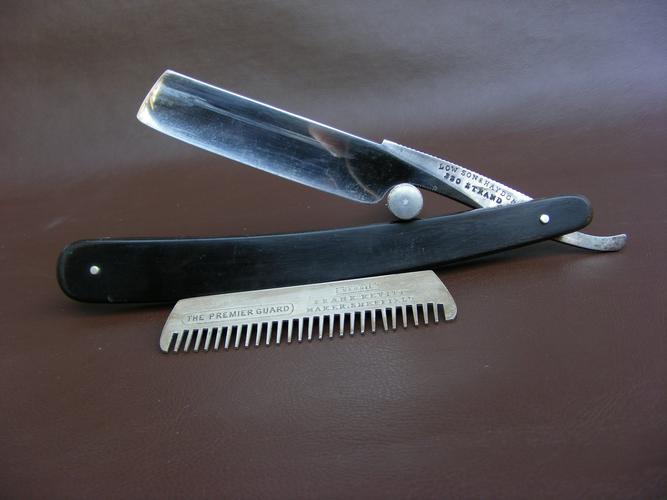
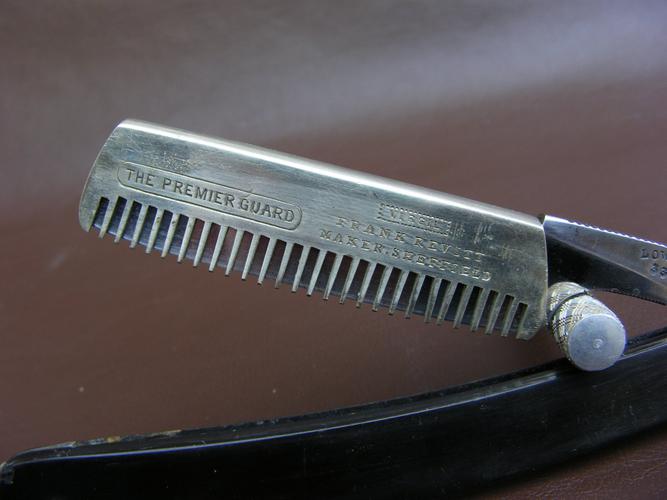
And yes, in France we mostly call straigh razors "cabbage cutters", the literal translation of "straight razor", "rasoir droit" is also seldom used. We're strange like that. One of the most important French communities is therefore the CCC for "Coupe Chou Club".
Beautiful is important, but when all is said and done, you will always be faithful to a good shaver while a bad one may detter you from ever trying again. Judge with your skin, not your eyes.
We're strange like that. One of the most important French communities is therefore the CCC for "Coupe Chou Club".
Beautiful is important, but when all is said and done, you will always be faithful to a good shaver while a bad one may detter you from ever trying again. Judge with your skin, not your eyes.
-
04-14-2015, 06:23 PM #27Senior Member



- Join Date
- Mar 2012
- Location
- Thunder Bay, Ontario, Canada
- Posts
- 17,311
Thanked: 3228
Thanks Aggelos, now I get to see what is missing on all those strange looking straight razors like that.
BobLife is a terminal illness in the end
-
04-14-2015, 06:44 PM #28Senior Member



- Join Date
- Apr 2008
- Location
- Essex, UK
- Posts
- 3,816
Thanked: 3164
No apology necessary my friend.
I do have a few friends on the CCC forum and I have posted a few times there before. I think one thread included my identification of a makers mark with contribution by Charlie Horologie and others.
And yes, that is an interesting razor you included a pic of, but as far as framebacks go it is a blind alley - no relation at all. It is none other than our old friend the Guard Razor, an attempt at a kind of safety razor - the fingers on the guard were supposed to stop you from cutting yourself. Some kinds emerged c1860s for civil war soldiers who had lost a limb or who suffered from shock of the war - it was supposed to help a one armed shave and save a man with trembling hands from cutting himself.
I am fairly confidant that the guard in your pic does not belong to razor - the razor is a Sheffield made one stamped with the logo of a London dealer (can not make out the name, but Strand is an affluent street in London), while the guard is for a Frank Revett "Virgil" brand razor - he was a leading Sheffield maker.
Regards,
NeilLast edited by Neil Miller; 04-14-2015 at 06:50 PM.
-
The Following User Says Thank You to Neil Miller For This Useful Post:
Aggelos (04-14-2015)
-
04-15-2015, 04:27 AM #29

There were other variations on the basic frameback design, not just the two most people have seen (IE, blade fitted into different-metal spine and tang vs. thin razor with alternate metal raised areas on the spine).
As near as I can tell, the first design was the one Bennington Gill (of Birmingham) came up with and sold to Rhodes & Champion in 1824.
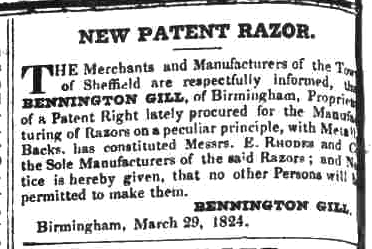
After David Champion died, his sons continued the business and sold this razor sometime around 1824-1826:

Most of the early Sheffield framebacks are like that with either brass or German silver.
The Brothers Dittmar in Heilbronn, Germany were producing this odd design in the 1840's:
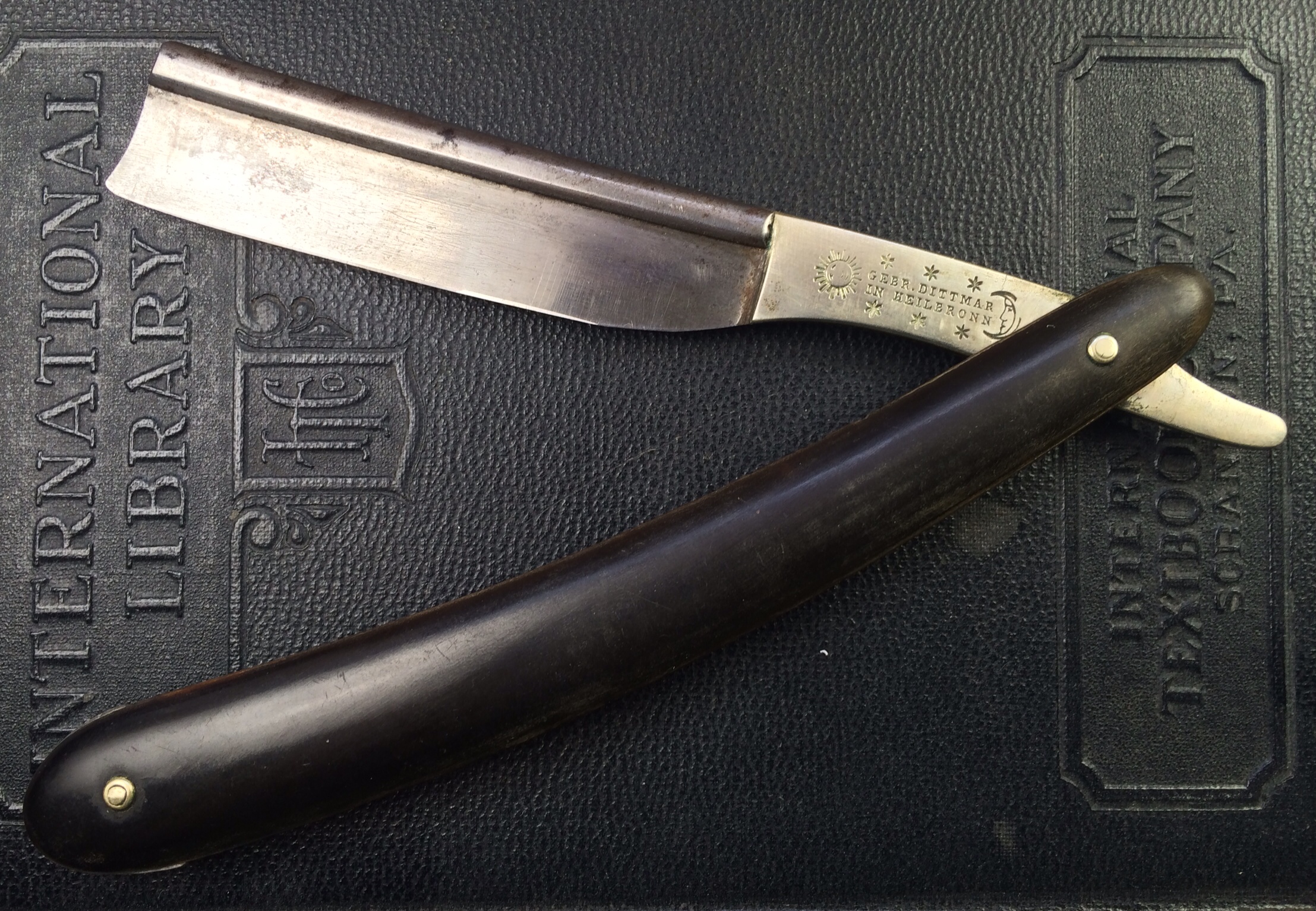
The grind on that is remarkably complex. The blade and tang are a single piece, but the blade is ground flat and about 4mm deeper on either side than the tang. Then the tang has a cladding of German silver that the maker's mark is stamped into, plus the tube on the top is notched to fit into a slot at the top of the tang.
Their earlier design was much simpler (I don't have pictures), but it was essentially what most people think of as the 'tubed spine' style frameback.
By the 1850's, Sheffield produced a lot of these:
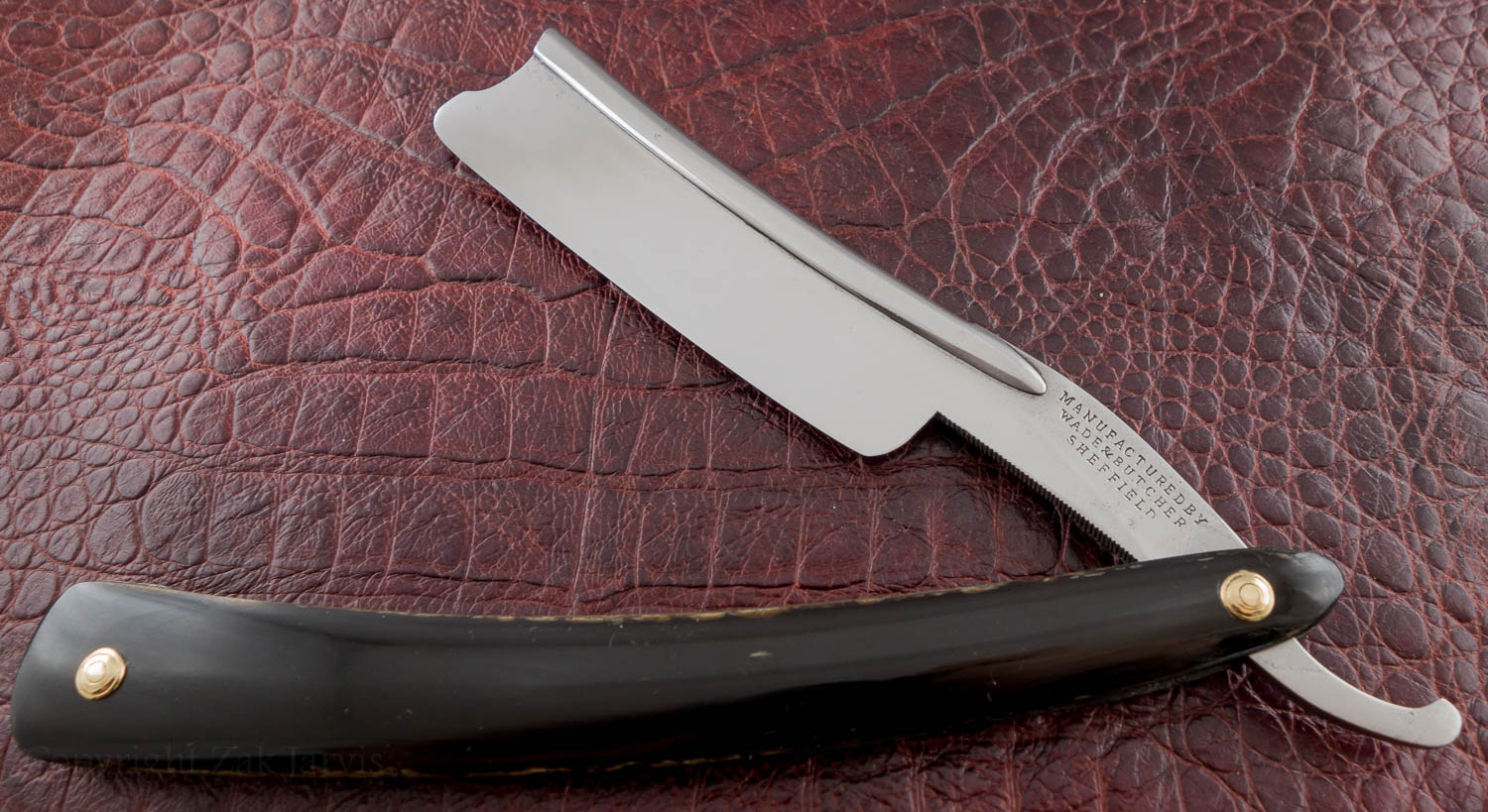
Though these were also popular:
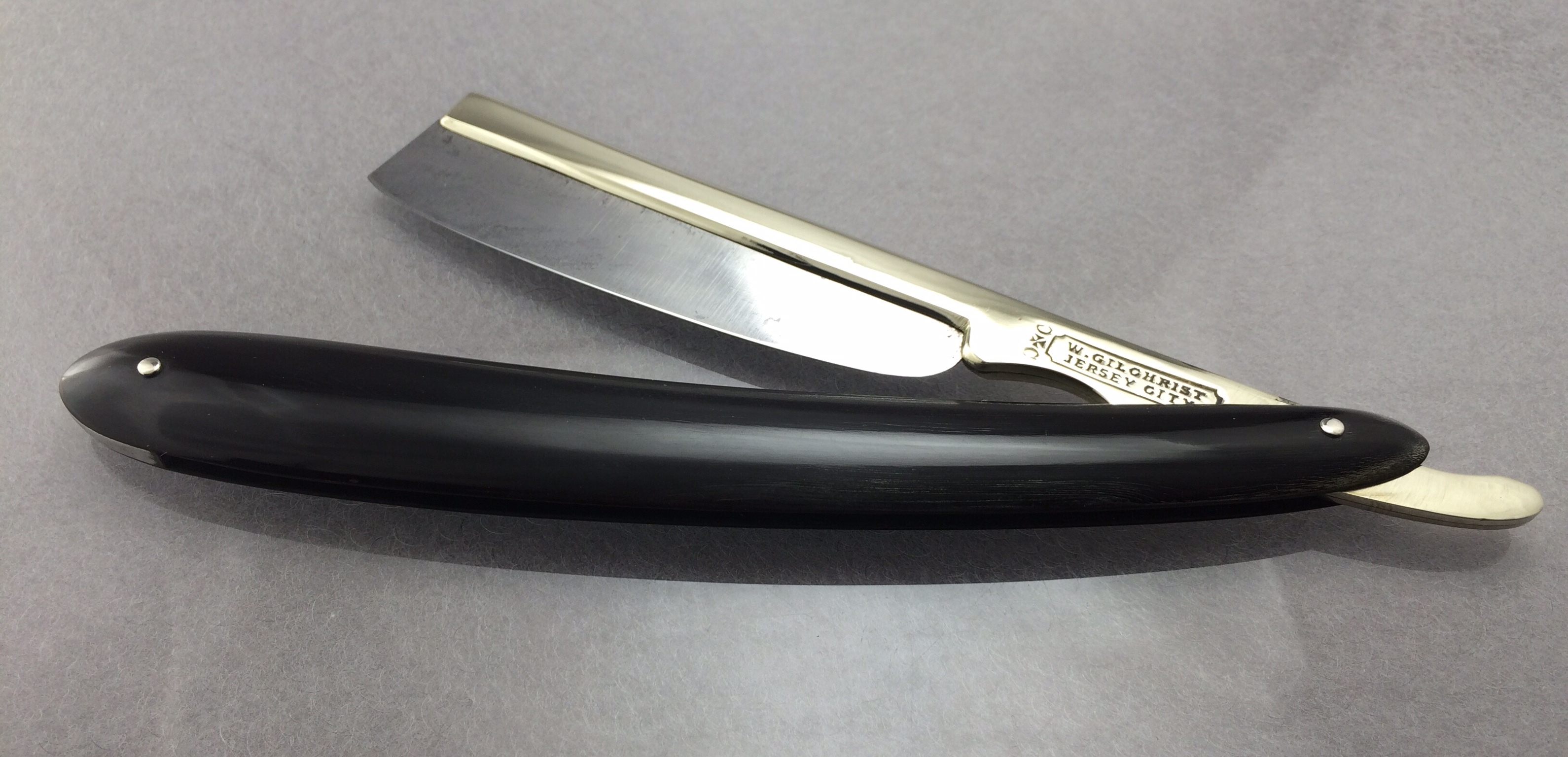
(That's a Joseph Elliot manufactured William Gilchrist razor)
Japan produced a lot with this design after 1950 or so:
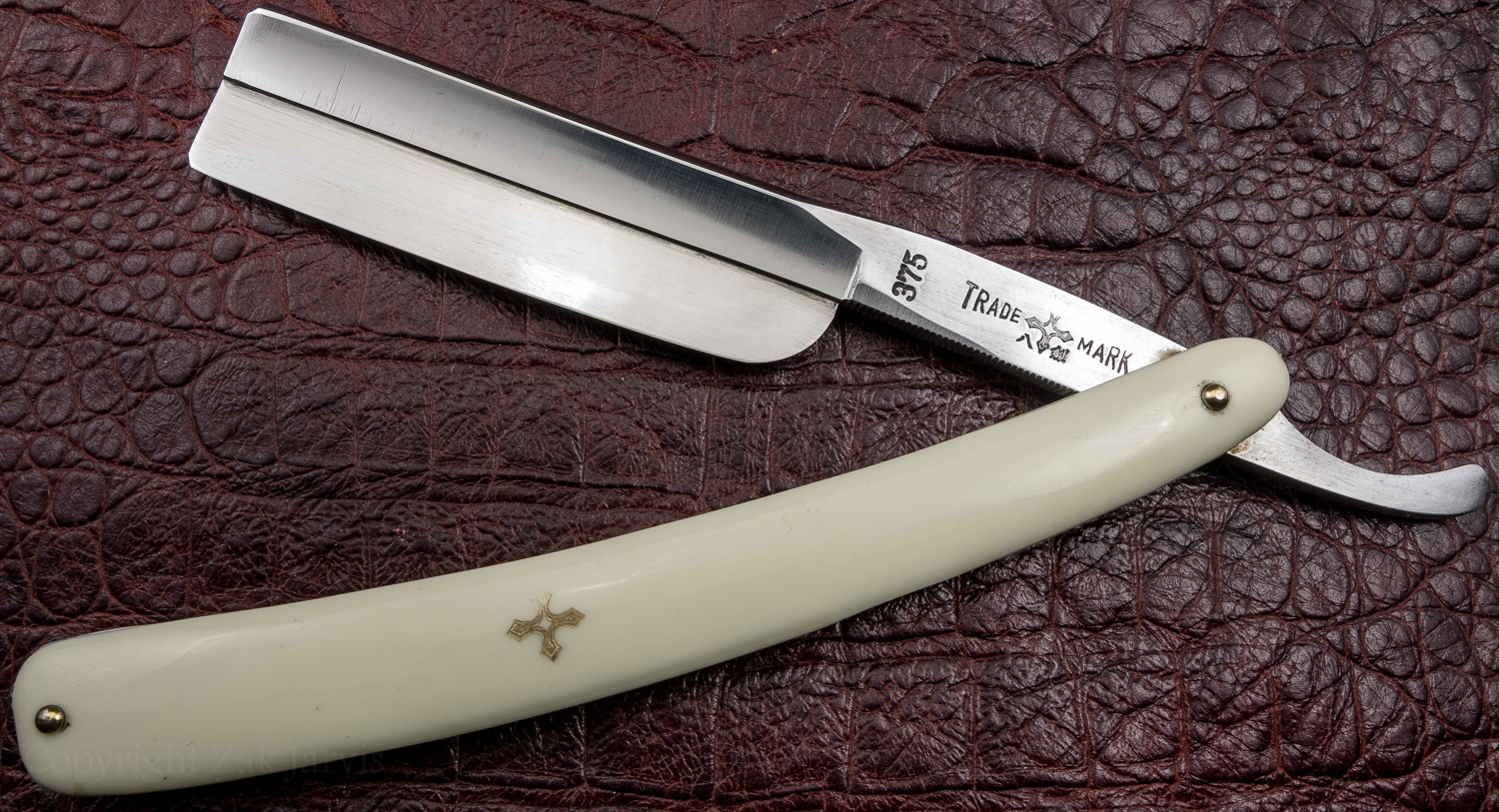 -Zak Jarvis. Writer. Artist. Bon vivant.
-Zak Jarvis. Writer. Artist. Bon vivant.
-
-
04-15-2015, 04:28 AM #30

And of course, Sheffield produced any number of razors designs that don't have any specific name, like this Wade & Butcher manufactured William Gilchrist:
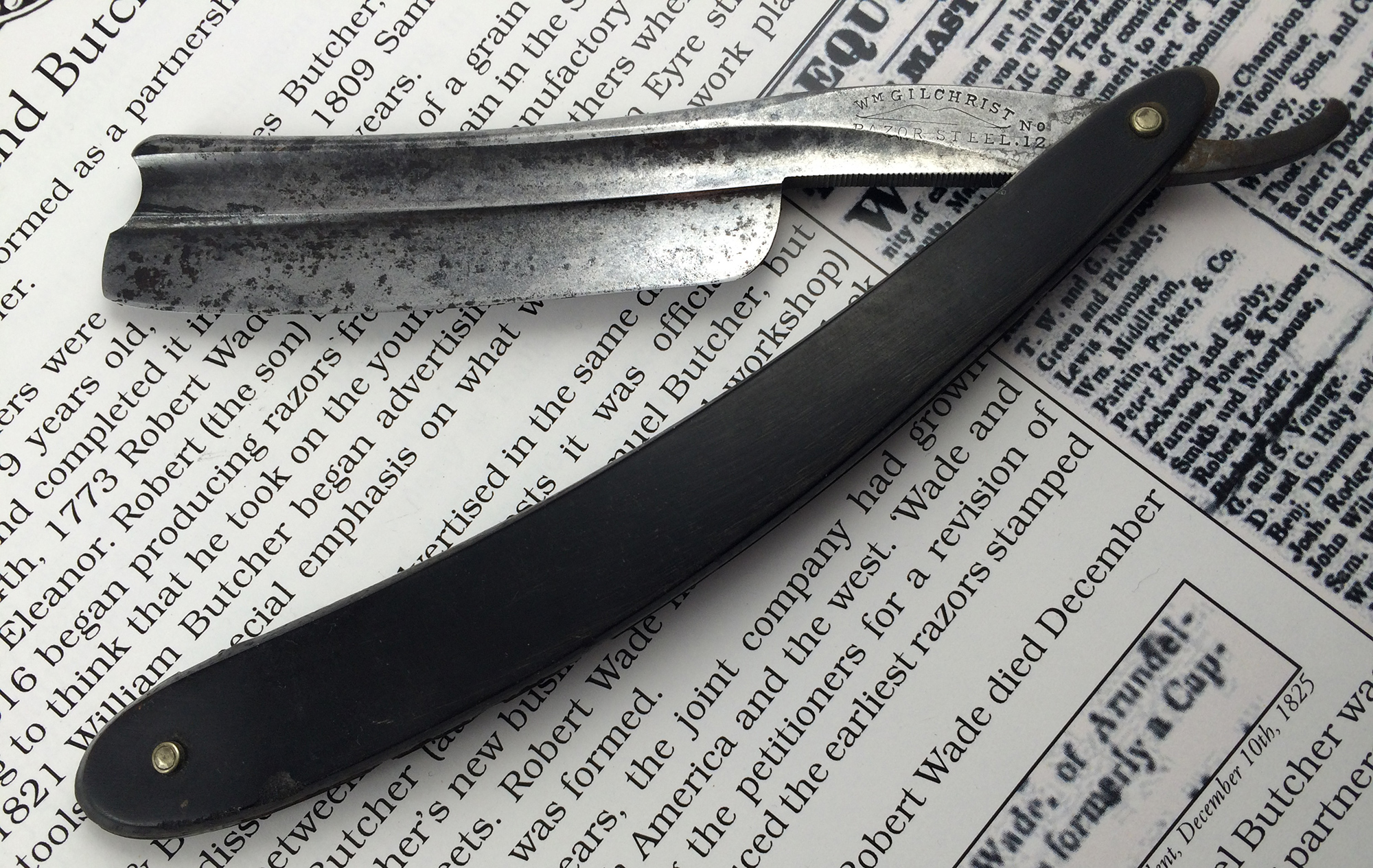
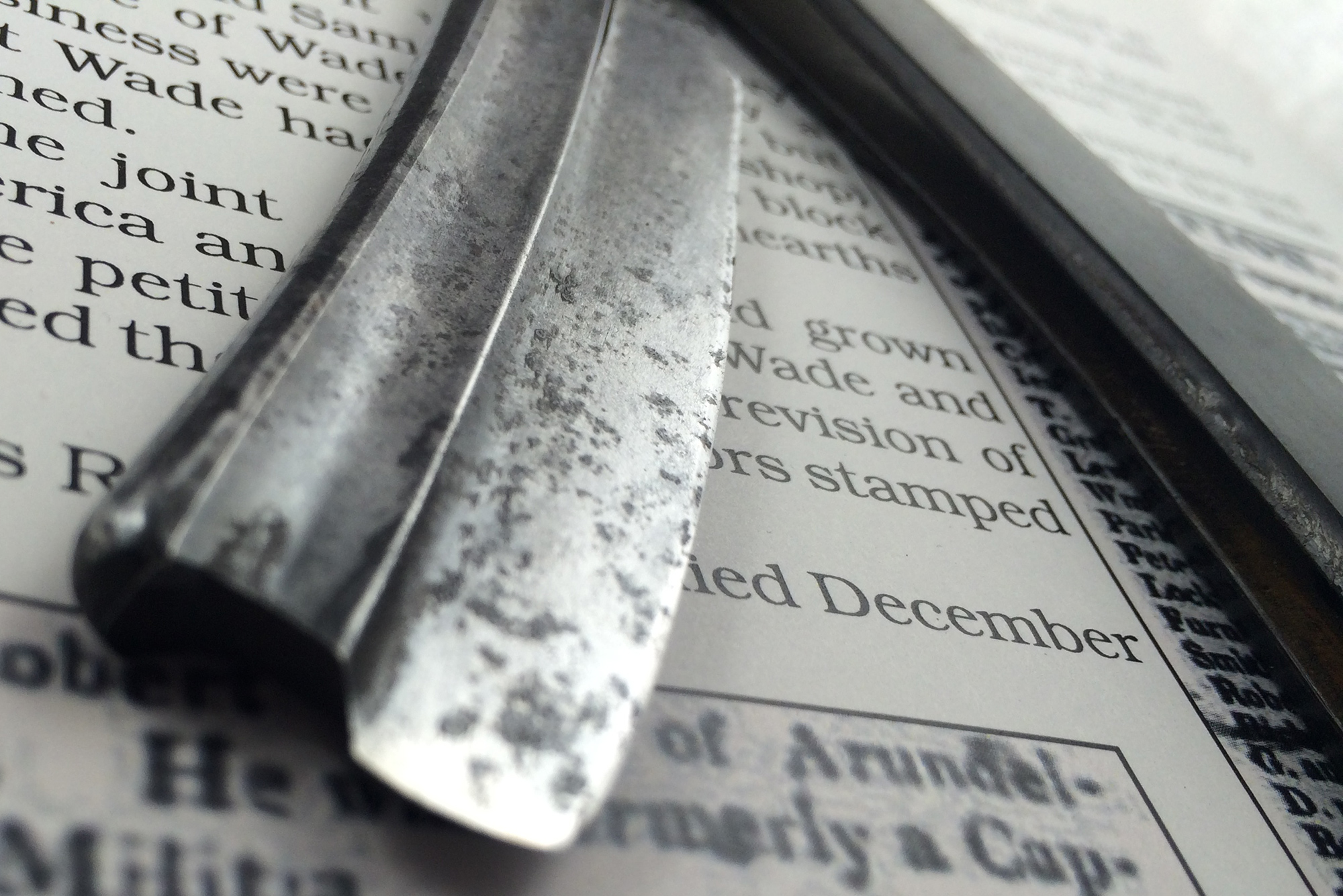 -Zak Jarvis. Writer. Artist. Bon vivant.
-Zak Jarvis. Writer. Artist. Bon vivant.
-
The Following 4 Users Say Thank You to Voidmonster For This Useful Post:
Aggelos (04-15-2015), Frankenstein (04-15-2015), Neil Miller (04-15-2015), sharptonn (04-15-2015)


 62Likes
62Likes LinkBack URL
LinkBack URL About LinkBacks
About LinkBacks






 Reply With Quote
Reply With Quote



